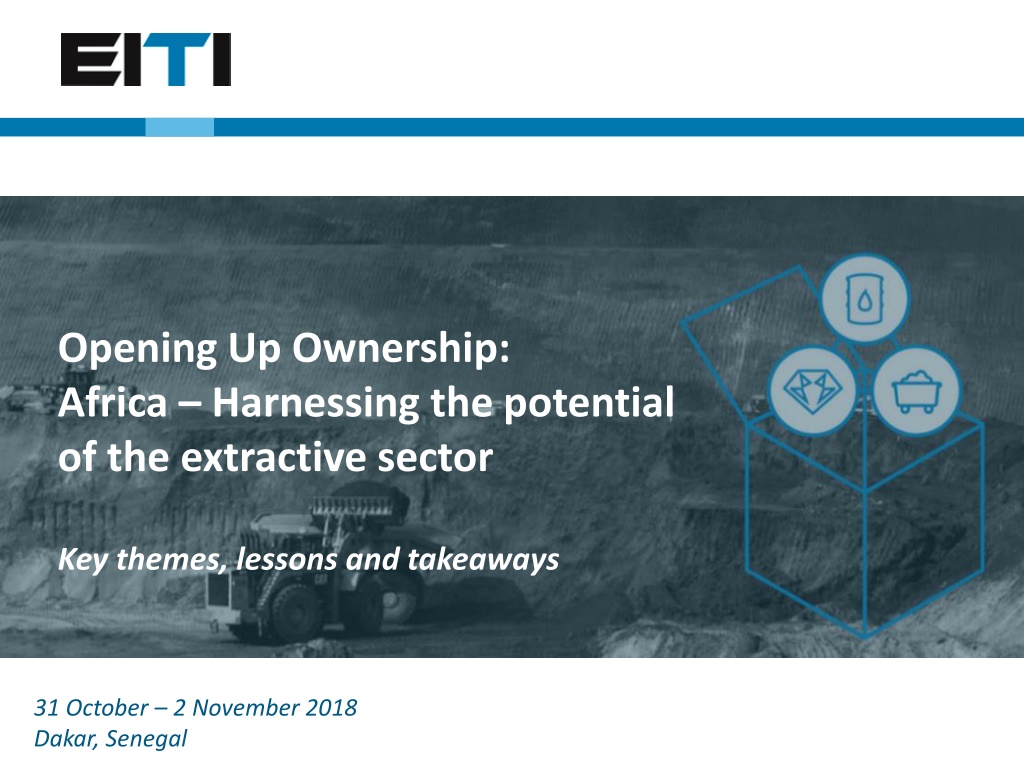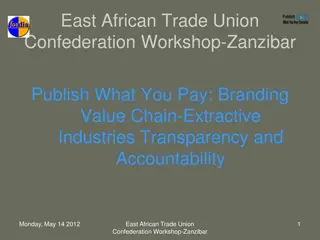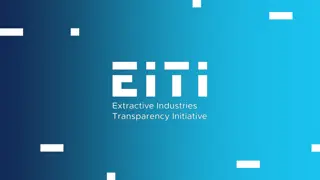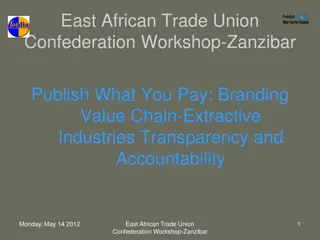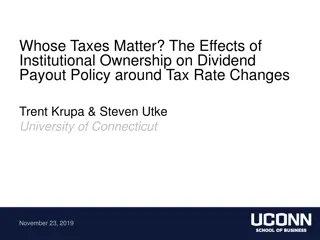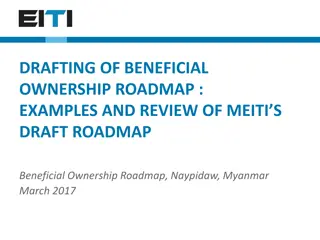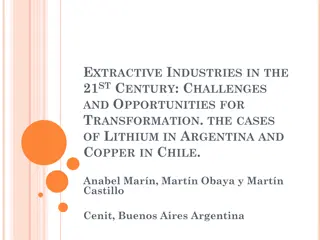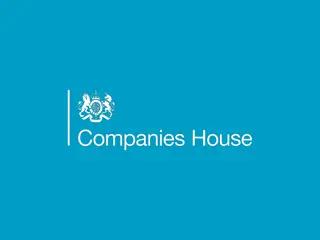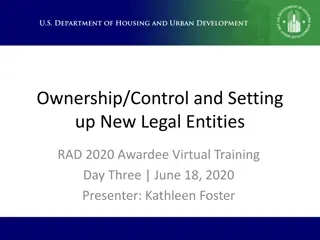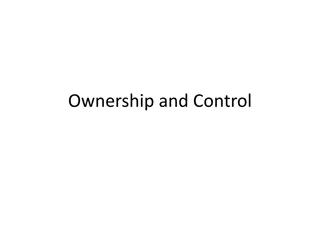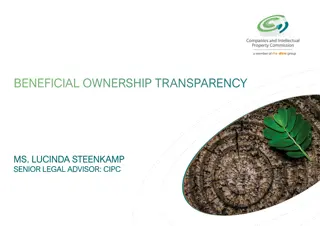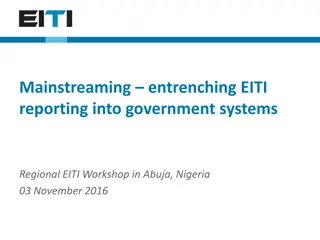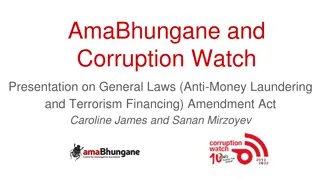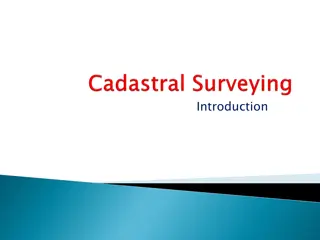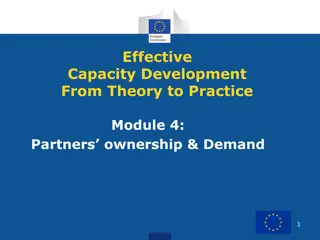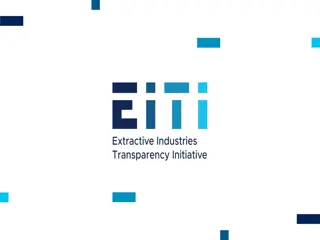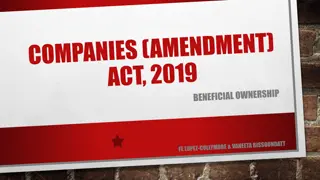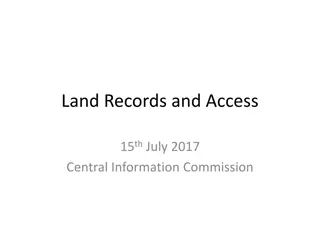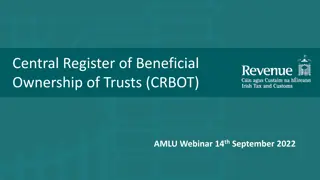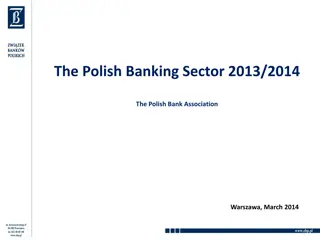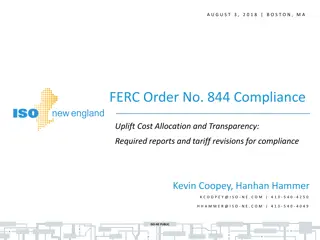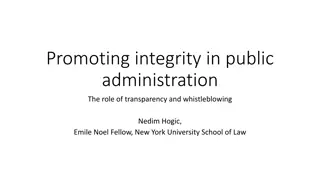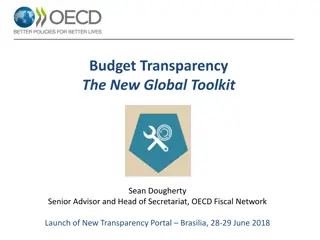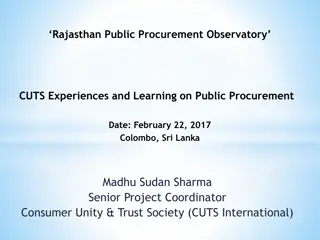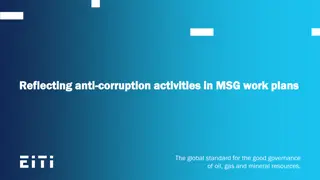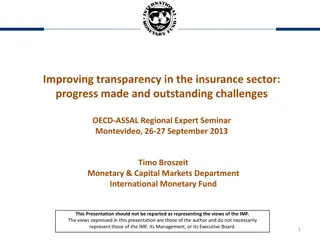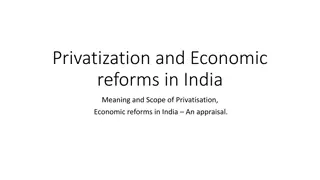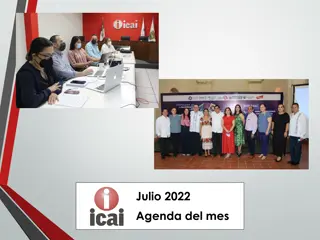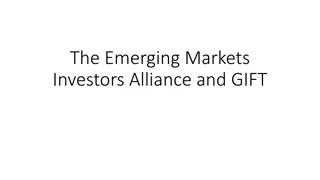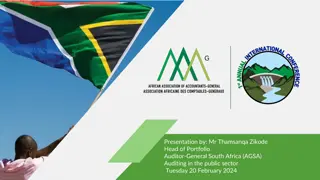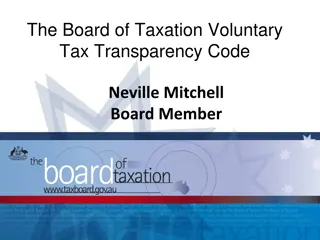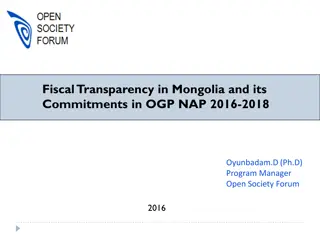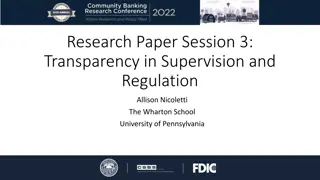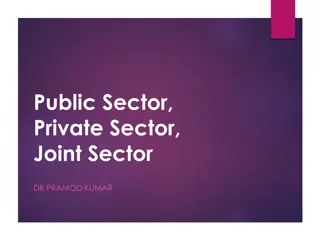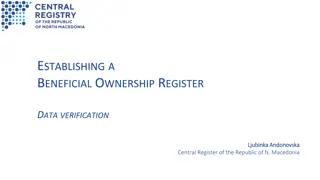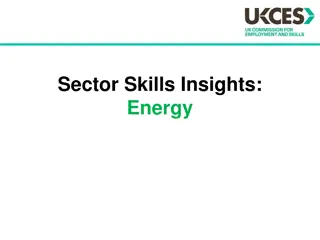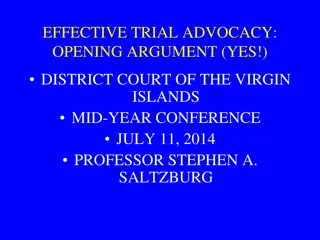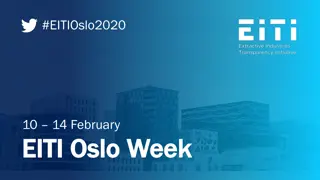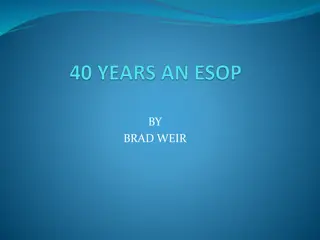Enhancing Extractive Sector Transparency: Insights from Opening Up Ownership Conference
Insights from the conference in Dakar, Senegal, highlight the importance of beneficial ownership transparency in the extractive sector. Key themes, lessons, and takeaways emphasize the global norm of transparency by 2020, aiming to combat corruption and promote good corporate behavior.
Download Presentation

Please find below an Image/Link to download the presentation.
The content on the website is provided AS IS for your information and personal use only. It may not be sold, licensed, or shared on other websites without obtaining consent from the author. Download presentation by click this link. If you encounter any issues during the download, it is possible that the publisher has removed the file from their server.
E N D
Presentation Transcript
Opening Up Ownership: Africa Harnessing the potential of the extractive sector Key themes, lessons and takeaways 31 October 2 November 2018 Dakar, Senegal
Stats 2.5 days 250+ participants 30+ countries 40+ organisations 60+ experts The EITI has been a driving force in moving the beneficial ownership debate forward. In the past 12 months: laws have been drafted, adapted and adopted. The conversations at Dakar have been detailed, experiences have been shared and best practice debated. Beneficial ownership transparency is here to stay, it is now a global norm. Target 2020 2016 Requirement adopted 2018 Dakar conference 2017 Jakarta conference
Quotes Knowing your beneficial owners is a key issue for all EITI implementing countries and the wider world in order to harness the full value of the extractive industries. Transparency of beneficial owners helps fight against tax evasion, corruption, conflicts of interest and illicit financial flows, in order to improve the investment climate. H.E Macky Sall, President of Senegal
Road to 2020: the EITIs beneficial ownership requirement EITI requires that countries must ensure that oil, gas and mining companies that apply for, or hold a participating interest in an exploration or production oil, gas or mining license or contract in an EITI country must disclose their beneficial owners no later than 1 January 2020; Must identify politically exposed owners.
Why are we doing this? Beneficial ownership transparency will: Simplify reporting for companies Create a level playing field for all companies Increase the potential for quality investment Enhance transparency and reduce corruption risks Increase trust between governments, companies and civil society the reason for BO disclosure in the UK is to create a good corporate behavior and trust across the economy . Matthew Ray, UK government
Best fit, not best practice countries are taking different approaches to disclosing beneficial ownership data Some are taking a targeted approach, focusing on oil, gas and mining companies Others are including all sectors and companies registered in their countries. There is no good or bad approach Stakeholders must decide what works in their context, inline with national priorities
Country examples Guinea and Sierra Leone will publish BO data in oil gas and mining sectors. The DRC will publish information in mining first then in the oil and gas sector. Nigeria plans to establish a public register before 2020. Ghana will publish the BOs of companies bidding for petroleum blocks. The United Kingdom has already published a complete register.
On drafting legislation We are all still in a learning process when it comes to legislating beneficial ownership disclosure. This is why this conference is so important . Stephen Karangizi, ALSF. We want our law to work, and therefore learn from others who have made progress on beneficial ownership Luse Chansa-Kalonga, Zambia.
Next steps: countdown to 2020 We have only 12 months until this requirement comes into full force. Start reporting now. Knowledge has increased but appetite remains undiminished Getting the legislation right is just the beginning, implementation is key Demand for technical assistance is high. There are many options to consider and there are partners who are willing to support.
